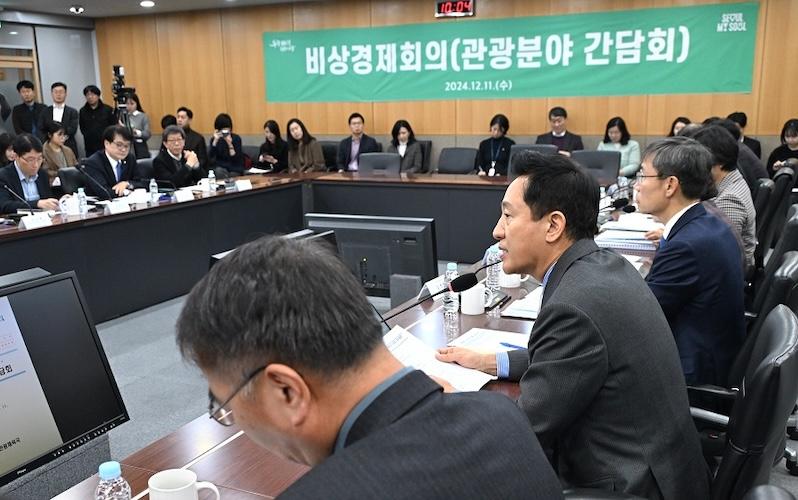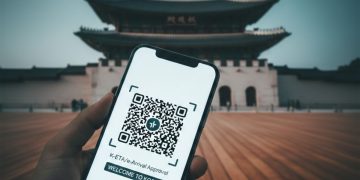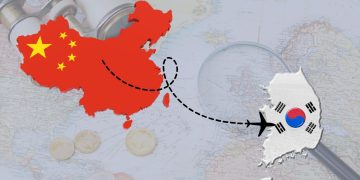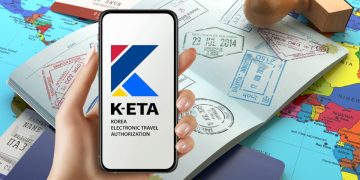Discover how South Korea tourism industry is navigating challenges amid recent political unrest and the country’s resilience to overcome.
The tourism sector in South Korea, a major economic driver, is navigating a challenging period following the political turmoil surrounding President Yoon Suk Yeol’s recent declaration of martial law. Although the brief six-hour imposition was swiftly revoked after parliamentary intervention, the incident has raised concerns among travelers and industry stakeholders.
South Korea Tourism in Numbers
South Korea’s travel and tourism industry contributed approximately 84.7 trillion won ($59.1 billion) in 2023, accounting for nearly 4% of the country’s GDP. The sector has been resilient through past challenges, including the 2016 impeachment of former President Park Geun-hye and ongoing geopolitical tensions with North Korea. However, this recent crisis arrives at a critical time as the industry approaches recovery, with visitor numbers nearing 97% of pre-pandemic levels by late 2024.
The Korea Tourism Organization reported 7.7 million visitors in the first half of 2024, but political unrest is casting a shadow over efforts to meet the year’s target of 20 million foreign tourists. Officials now cautiously aim for 17 million, hoping to maintain momentum through the winter season—a peak time for travelers, particularly from Southeast Asia.
Impact of South Korea Political Unrest on Hospitality and Bookings
The fallout from the crisis is already evident in the hospitality sector. Hotels, tour operators, and even medical tourism providers are reporting an uptick in cancellations. For instance:
- Accor Hotel Group has observed a slight increase in cancellations, with rates 5% higher than the previous month.
- Seoul-based plastic surgery clinics, popular among international medical tourists, are experiencing postponed appointments from overseas clients.
- Previously fully-booked hotels in Seoul have begun offering special deals and discounts to attract visitors.
Despite these setbacks, Mayor Oh Se-hoon of Seoul reassured tourists, stating that “Seoul is safe” in English, Mandarin, and Japanese. This is mainly to restore the confidence among tourists from outside the country. It is all for emphasizing that the tourist activities are not impacted and the daily life is continuing as normal.

Political Context and Safety Concerns
President Yoon’s brief declaration of martial law, followed by his impeachment by the National Assembly, has led to widespread protests and international attention. South Korea’s robust institutions and checks and balances earn praise, but the uncertainty raises questions about the nation’s political stability.
Protests continue to take place in Seoul, prompting some embassies to advise their citizens to avoid areas of unrest. Past incidents, such as the 2016–2017 protests during Park Geun-hye’s impeachment, saw a 23% drop in tourist arrivals. The current situation may yield a similar, albeit temporary, impact.
Soft Power and Recovery Efforts
South Korea’s global image has been bolstered in recent years by the Korean Wave-the international popularity of K-dramas, K-pop, and K-beauty. These cultural exports, coupled with the country’s reputation for safety and innovation, play a pivotal role in attracting international tourists.To mitigate the impact of the crisis, the Korea Tourism Organization and local authorities are focusing on:
- Highlighting South Korea’s vibrant culture and safe travel environment.
- Promoting group business travel (MICE tourism), a growing sector integral to the country’s tourism strategy.
- Targeting a 30 million tourist goal by 2027, nearly double the pre-pandemic figure.
Industry experts have a positive outlook on the long-term prospects for South Korea. By demonstrating resilience during this challenging period, the country could strengthen its reputation as a stable and desirable destination. For example, analysts expect that showcasing South Korea’s successful management of these obstacles will enhance its global standing.
Conclusion
Despite the immediate challenges posed by the political turmoil, South Korea’s tourism industry has consistently demonstrated resilience in the past. Strategic initiatives, combined with the nation’s rich cultural heritage, are expected to drive recovery efforts and fuel growth in the coming years. With winter festivities underway and reassurances from officials, South Korea remains a destination worth exploring for international travelers.
3,883 total views, 1 views today

















